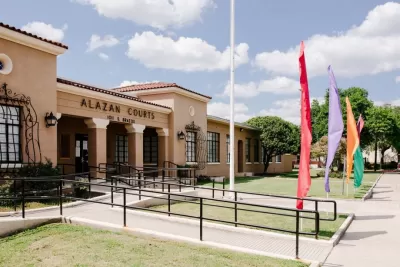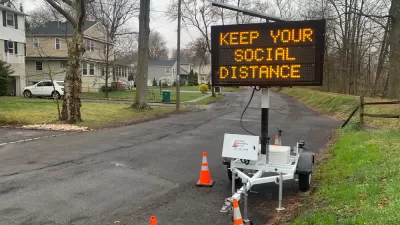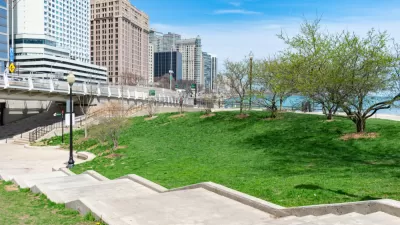The San Antonio Housing Authority has been working for years to replace the Alazán-Apache Courts with mixed-income housing using a tax-credit deal. But that plan is now scrapped in favor of keeping the apartments as public housing.

For the last several years, the San Antonio Housing Authority has been planning a project that would see the Alazán-Apache Courts, the city’s oldest public housing complex, demolished and replaced with mixed-income housing. The plan was controversial for several reasons. Residents feared that they wouldn’t be able to afford to return to the complex after it was rebuilt, and that they wouldn’t be able to find other affordable apartments elsewhere in San Antonio, even with housing vouchers. And some advocates have said that the project could swiftly gentrify San Antonio’s West Side.
Last fall, the National Trust for Historic Preservation listed the Alazán-Apache Courts on its annual list of “most endangered places.” Residents protested the plan as recently as January. Then, after the housing authority’s executive director left for a position in Denver, the authority changed course. Instead of partnering with private developers to redevelop the courts as a mixed-income community, it committed to keeping all of the public-housing units that exist onsite. Most of the units will still be demolished and replaced over time, but the replacement units will be public housing, owned and operated by the housing authority, rather than privately owned apartments rented to voucher holders.
The San Antonio Housing Authority’s interim president and CEO, Ed Hinojosa, Jr., recently spoke with Next City about why the group decided to commit to keeping Alazán-Apache Courts intact as a public housing community, and how attitudes toward public housing are evolving.
FULL STORY: A New Commitment to Public Housing in San Antonio

Montreal Mall to Become 6,000 Housing Units
Place Versailles will be transformed into a mixed-use complex over the next 25 years.

Planetizen Federal Action Tracker
A weekly monitor of how Trump’s orders and actions are impacting planners and planning in America.

DARTSpace Platform Streamlines Dallas TOD Application Process
The Dallas transit agency hopes a shorter permitting timeline will boost transit-oriented development around rail stations.

Study: 4% of Truckers Lack a Valid Commercial License
Over 56% of inspected trucks had other violations.

Chicago Judge Orders Thousands of Accessible Ped Signals
Only 3% of the city's crossing signals are currently accessible to blind pedestrians.

Philadelphia Swaps Car Lanes for Bikeways in Unanimous Vote
The project will transform one of the handful of streets responsible for 80% of the city’s major crashes.
Urban Design for Planners 1: Software Tools
This six-course series explores essential urban design concepts using open source software and equips planners with the tools they need to participate fully in the urban design process.
Planning for Universal Design
Learn the tools for implementing Universal Design in planning regulations.
City of Mt Shasta
City of Camden Redevelopment Agency
City of Astoria
Transportation Research & Education Center (TREC) at Portland State University
US High Speed Rail Association
City of Camden Redevelopment Agency
Municipality of Princeton (NJ)





























